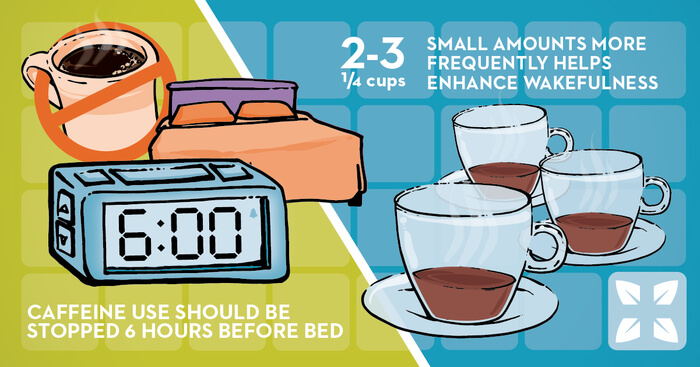Don’t Miss Our Latest Podcast
All About the 4 Most Common Sleep Disorders
Listen Now
If you’re a doctor, nurse, factory worker, or truck driver, you’ve no doubt had to work a night shift. Night shifts are a necessary part of our 24/7 society but working them can be challenging. More than 15 million people in the United States work full-time night shifts, evening shifts, rotational shifts, or other types of irregular schedules. These shifts can cause sleep disorders, which can affect performance and overall health
Here we’ll outline some of the things you can do to better cope with working late until the early hours of the day.
The human body is controlled by an internal body clock, or circadian pacemaker, which is located in the suprachiasmatic nucleus (SCN) of the hypothalamus. These circadian rhythms run in 24-hour cycles and are greatly affected by natural light and dark cycles. When you work at night, you’re battling your natural circadian rhythms by staying alert when your body is programmed to be sleeping.
You need seven to nine hours of sleep a night to function at your best. Make sure to build in enough time to sleep and make sure your environment is set up for peaceful sleep.
Exposure to light cues chemical events to take place in your body in keeping with your natural circadian rhythm. When it gets dark, your body releases melatonin, which makes you feel drowsy. When it’s light, melatonin is suppressed, and cortisol levels increase to make you feel more awake.
Some of the ways you can control your exposure to light include:
Caffeine is a stimulant, that when used carefully, can help you remain alert throughout your shift. Some studies show that consuming small amounts of caffeine, like a quarter cup of coffee, more frequently helps enhance wakefulness.
All caffeine use should be stopped around six hours before you want to go to bed.

If you work at night, taking a nap before your shift can help you stay alert. Even taking small naps, 20-45 minutes long, during your breaks can be helpful. Be careful not to sleep too long, which can leave you feeling less alert.
If you’re experiencing difficulty sleeping, staying awake at work, and/or extreme daytime sleepiness, find a provider and set up an appointment to learn more today.
People who work night shifts or different ships can suffer from shift work sleep disorder (SWSD), which causes symptoms like insomnia and excessive sleepiness. Other symptoms associated with SWSD include difficulty concentrating, headaches, and lack of energy.
Not everyone who works these shifts suffers
from SWSD. It’s currently estimated that 10-40% of shift workers have SWSD. If
you’re a shift worker and are experiencing any of these symptoms, talk to your
doctor.